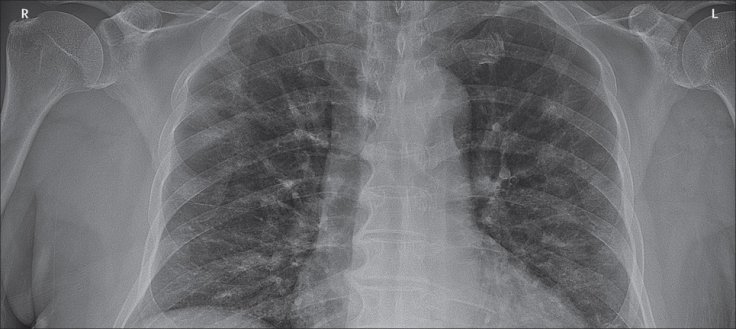An Indian professor says that he has developed software that detects coronavirus by five seconds using a lung X-ray scan of the suspected patient. Prof Kamal Jain from Indian Institute of Technology (IIT) Roorkee took more than 40 days to develop the software and has applied for a review from the Indian Council of Medical Research (ICMR) and also filed a patent for the same.
Jain, a professor at the civil engineering department, told to Press Trust of India that the software will not only reduce the cost of coronavirus testing but would also decrease the risk of exposure to healthcare workers. However, until now, there seem to be no verification from any medical institution for the claim made by him, reported First Post.
AI-based tool

The professor developed an artificial intelligence (AI) based database after analyzing more than 60,000 X-ray scans, that included patients with COVID-19, pneumonia and tuberculosis in order to differentiate between various kinds of chest congestions suffered in these three diseases. The chest X-ray database of the United States' NIH Clinical Center was also used, said Prof Jain.

Using the software developed by Jain, the doctors "can simply upload pictures of an individual's X-ray". The software, in addition, can be used for classifying if the patient has signs of pneumonia, it would tell of it is due to novel coronavirus or other bacteria along with measuring the severity of the infection. All these within five seconds.
"The software will analyze bilateral opacity, pattern of fluid build-up in lungs and nature of clump or clot if any," the professor said, as the pneumonia caused by SARS-CoV-2 is severe than bacteria as it affects the lungs completely, rather than smaller portions of lungs.
Jain said that the software can help in accurate preliminary screening which could be supplemented by clinical testing for patients who tested positive for the coronavirus.
No breakthrough in similar experiments
Similar experiments were being done by the University of Amazon in the US, but no breakthrough was seen, claimed Jain. "As the pandemic progresses, the medical community will frequently rely on portable CXR due to its widespread availability and reduced infection control issues that currently limit CT utilization." concluded a recent study, in line with the latter research.









